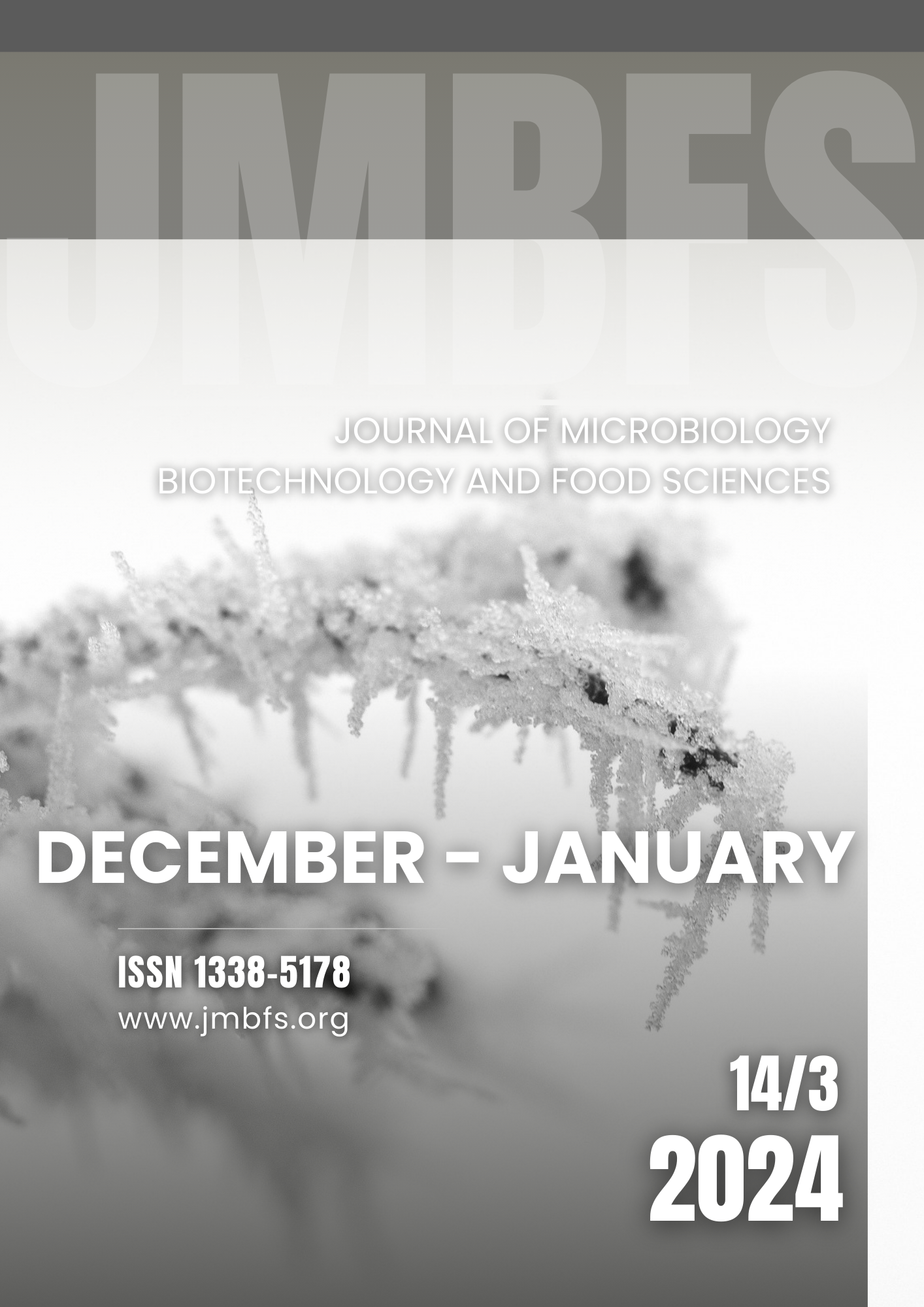IN VITRO ANTIBACTERIAL ACTION OF ZINGIBER OFFICINALE ROSCOE CRUDE EXTRACT IRRIGATION AGAINST STAPHYLOCOCCUS AUREUS ISOLATED FROM INFECTED HUMAN ROOT CANALS
DOI:
https://doi.org/10.55251/jmbfs.11691Keywords:
Zingiber officinale Roscoe, sodium hypochlorite, root canal, irrigation, GC-MS, antibacterialAbstract
Root canal irrigating solutions with strong antibacterial properties are crucial for effective endodontic therapy by preventing recurrent and persistent infections. The question now is not so much whether microbes play a role in the pathophysiology of pulpitis and apical periodontitis, but rather whether species of microbes play a role. The list of microorganisms linked to periodontitis is still growing and could get more precise in future years. Conventional antibacterial agents such as sodium hypochlorite (NaOCl) have failed to overcome a variety of Staphylococcus aureus moreover its toxicity and the occasional report of pain when higher concentrations are used. 7 S. aureus strains were isolated from infected root canals and identified using the VITEK® 2 compact system. An aqueous crude extract of Zingiber officinale Roscoe was prepared and used as a safe and effective antibacterial agent against the S. aureus isolates and S. aureus ATCC 25923. The gas chromatography-mass spectrometry (GC-MS) analysis of Z. officinale Roscoe extract exhibits 14 different biochemical compounds including gingerol (46.11%), zingiberene (17.12%), and thymol (11.20%) as the main constituents. The antibacterial activity of Z. officinale Roscoe extract and NaOCl was investigated against S. aureus strains compared to ciprofloxacin as a standard drug using agar well diffusion method, minimum inhibition zone concentration (MIC), and minimum bactericidal concentration (MBC). The Z. officinale Roscoe extract revealed higher antibacterial activity than NaOCl and ciprofloxacin with inhibition zones averages of 18 ± 0.03, 16 ± 0.06, and 15 ± 0.14 mm, respectively. The MIC and MBC values of Z. officinale Roscoe extract were 40 and 40 µg/mL compared to NaOCl (55 and 65 µg/mL, respectively). This study provides an alternate antibacterial irrigation root canal solution, Z. officinale Roscoe extract against human pathogenic S. aureus.
Downloads
Downloads
Published
How to Cite
Issue
Section
License
Copyright (c) 2023 Hasnaa M. El-Gohary, Marwa M. Azab, Ali A. Abdelrahman, Dalia M. Fayyad, Mohammed A. El-Kholy, Dalia A. Mohamed, Mohamed M. El-Zahed

This work is licensed under a Creative Commons Attribution 4.0 International License.
All papers published in the Journal of Microbiology, Biotechnology and Food Sciences are published under a CC-BY licence (CC-BY 4.0). Published materials can be shared (copy and redistribute the material in any medium or format) and adapted (remix, transform, and build upon the material for any purpose, even commercially) with specifying the author(s).





